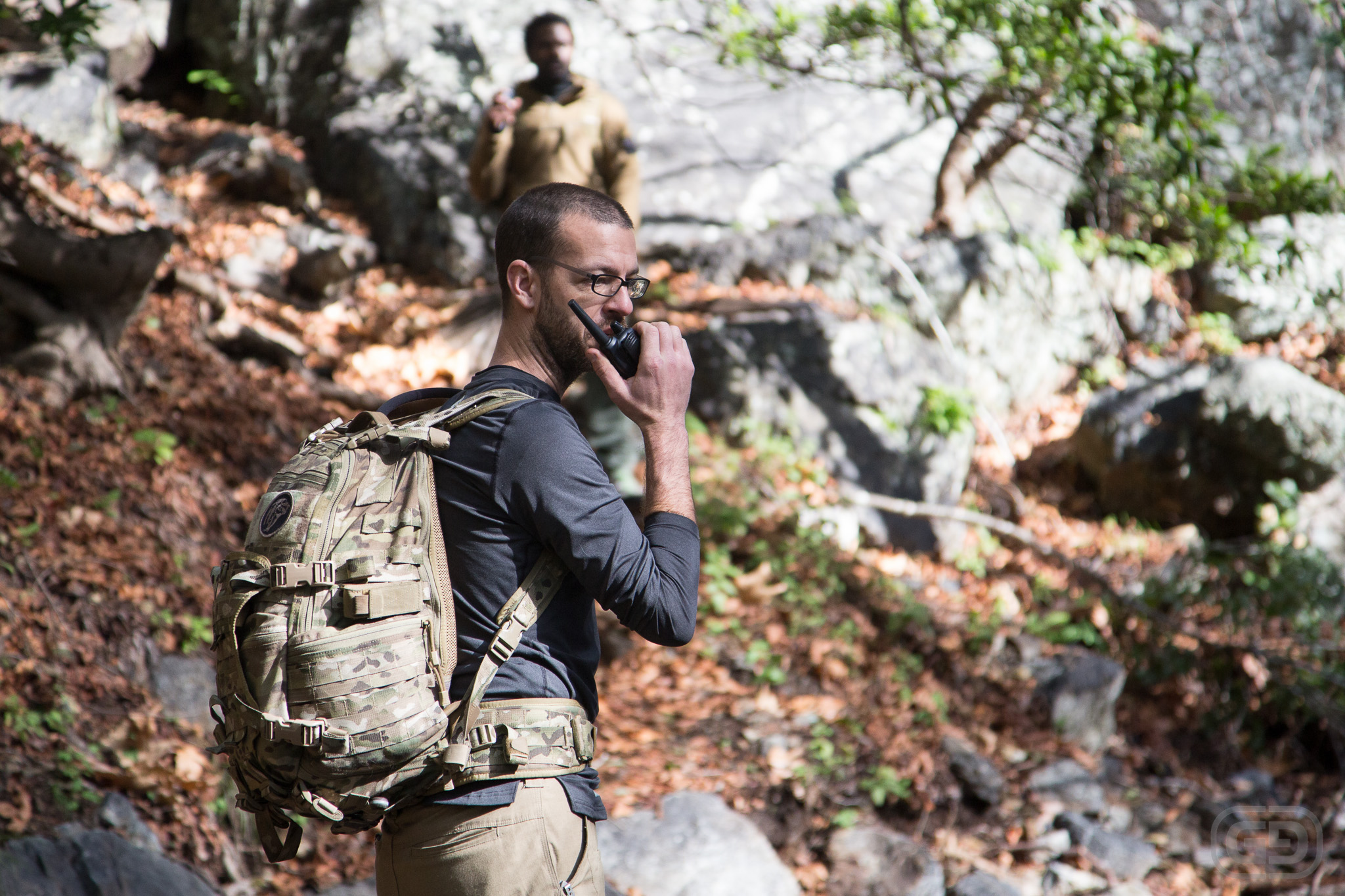Long Distance Communication
The importance of Walkie Talkies on Long Hikes
We have all gotten used to mobile communication as smart phones have embedded themselves into our every day lives. So much, that at times we rely on them so much, we don't know what to do with ourselves when our signal is down, or out of reach.
Over a decade ago, before everyone got used to having their cell phones in our pockets, walkie talkies gained prominence as climbing and hiking accessories. The market has grown since and now holds products covering virtually every price bracket.

Walkie Talkies, also known as two way radios, do not have some distinct problems cell phones may experience during your long hikes into the wilderness. For a start, walkie talkies do not use sim cards. You do not have to be afraid of extreme phone charges when you use them abroad as transmission over FRS (Family Radio Service) is free. A second, probably even more important point to mention, is that walkie talkies do not rely on cell phone signal. Lets face it, the second you wander into the woods, your cell phone signal drops, rendering it useless to communicate with other people which can be especially tricky if you were to get into trouble.
Given these factors, it's unsurprising that walkie talkies are considered an essential bit of kit by a great number of hikers and climbers. Straightforward communication between distant teams can be incredibly important to any large group or anyone engaged in more advanced climbing or hiking activities. Climbers especially will be aware of the importance of clear communication and associated climbing commands. Even with smaller or more leisurely groups though, keeping members in contact with each other allows individual members to hike at their own pace as they desire. For all groups the benefits of being able to report potential upcoming problems along routes or inform of potential delays are apparent and will be appreciated by anyone who has found themselves waiting for, or rushing to catch up with, fellow team members. Aside from this, the psychological benefits from knowing your group can always get in touch should not be understated.
Many modern walkie talkies come packed full with features such as being able to use privacy codes. Privacy codes scramble your messages, making sure that only your party will be able to receive them no matter which channel you're on. Additionally, a lot of modern walkie talkies come with dual or even triple watch features, making you able to stay on your channel talking to others, while at the same time scanning the emergency channel 6, which is scanned by mountain and rescue teams.
Most, if not all walkie talkies available today also come with some extra safety features, like NOAA weather channels. These weather channels are operated by the government and will give you location based weather reports round the clock. With a walkie talkie, you don't just get a communication device, you get a radio that will warn you of sudden weather changes ahead of time so you will not be caught out in an unexpected storm.
.jpg?timestamp=1454581601052)
Of course, one downside of walkie talkies is that you do not have a global range, like cell phones have. (if you do have good reception) Most walkie talkies have a maximum range of around 30 miles. Generally this should be more than enough, but if you think it might not be then there are ways of extending your range. If your walkie talkie has the capability to connect to GMRS range extenders you could look online to find where the nearest extenders are located. There are hundreds of them spread all over the country. For this you do need a GMRS license, but getting one is a relatively simple task.
If you're heading out into the wild, whether you're a seasoned hiker or not, a walkie talkie can be your best friend. There are hundreds of different models available in all sorts of different price classes. The importance of being able to contact the outside world should not be underestimated. You can find more on walkie talkies, and specific models here: Walkie Talkie Reviews